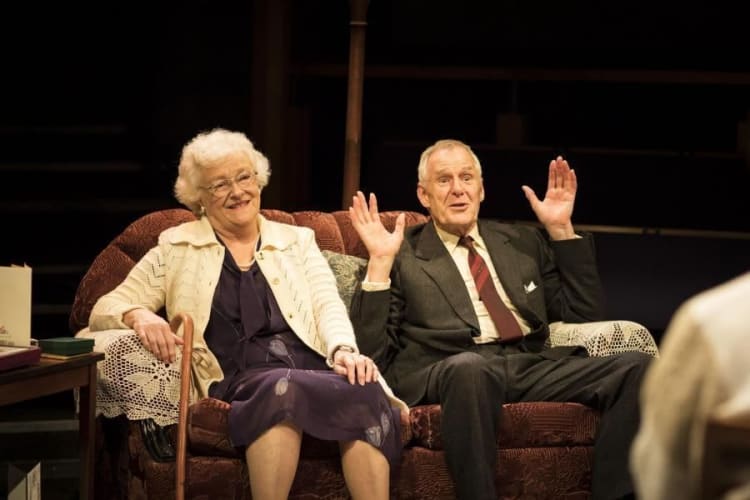In 1972, David Storey published Pasmore, a novel about Colin Pasmore, a troubled university lecturer from a working class background that won the Geoffrey Faber Memorial Prize and was shortlisted for the Man Booker. In 1989, he wrote this play in which that academic (now middle-aged and a writer) and his siblings visit their parents to mark the couple’s 60th wedding anniversary.
It premièred at the National Theatre but has had no major revival; this excellent production directed by Alice Hamilton makes you wonder why. It is a wonderful reminder of how Storey, who died earlier this year, drew on his own background and experience to create such real characters and natural dialogue.
Tommy Pasmore (Ian Gelder), his lungs wrecked by a life down the pit, and his wife (Sue Wallace) live in the Yorkshire bungalow Colin bought them with the proceeds from his first, most successful book. It isn’t luxury but its comforts are a long way from the way they were raised and the struggle they had to provide for their children, all of whom have moved on: Colin (Colin Tierney) as an author, Wendy (Sarah Belcher), the eldest, in politics with a businessman husband, and Eileen (Connie Walker), the youngest, married to a teacher.
This production opens very slowly and calmly as Colin silently brews tea in the middle of the night before he is joined by his sleepless father. It sets a pace and (especially in this in-the-round theatre) a concentration that match its intimate realism. It is a touching picture of a loving family, affection overriding frustrations and deep-seated dissatisfactions. The old couple seem to thrive on continual bickering, which makes the first half of the play very funny. Gelder and Wallace pitch it perfectly, but things are not really that simple.
Colin seems to be going through a personal crisis, Wendy, in the middle of a divorce has become disillusioned with Labour and become an Independent, Eileen, though she may never had huge aspirations is resigning herself to a husband who is never going to make a headmaster.
The mother who raised them (who it turns out voted Tory in the last election) doesn’t just remember past struggles but is facing new ones. She has always shouldered responsibility but now, with her Tommy losing short-term memory and picking up things in the corner shop without paying for them, there’s a fear in her eyes that contrasts with her carefully dressed hair. It weakens her tolerance. Her husband is hiding perhaps even greater panic.
This is much more than a picture of the generational difference that the 1940s giving working-class kids educational opportunities created. It offers in microcosm a nation that has been through the upheaval of the Thatcher years, half-understood changes in values and hopes disappointed.
